MAY 29, 2018
IESE Barcelona
Arnús i Garí, 3-7
08034 Barcelona
In the food and beverage industry, all companies are under permanent positive pressure, independently of their position on the value chain, due to the industry’s responsibility to society, which is not only seen from a customer-consumer perspective, but also from the issues that affect it, such as: how to feed a growing population based on nutrition and sustainability; how to define and transform world food systems; and how to promote innovation ecosystems with the opportunities offered by technological progress, Industry 4.0, smart data and intelligent and preventive nutrition.
In this context, food and beverage companies and industry leaders need to implement the right strategy to handle these challenges throughout the industry ecosystem. This strategy must operate at the speed of the digital era and be equipped with business models that respond to the expectations and demands of consumers, who are increasingly more informed, digitized, and aware of the close relationship between Food, Health and Well-being.
In short, society and people expect answers from this industry that help them improve their quality of life and their future. This is perhaps the industry’s greatest strength and driving force, and what gives it the initiative for constant innovation and research, as well as sustainable and responsible growth.
In the upcoming edition of the Food and Beverage Industry Meeting, organized with Deloitte, we will discuss the current ”state of play”, as well as future topics and scenarios. We will be joined by entrepreneurs, directors and academics, who will speak on Economics and Geopolitics, Innovation Ecosystems, the Future of Food, Consumer Habits and Expectations, Nutrition, Strategy and Business Models.
The Industry Meeting will be held on Tuesday, May 29, 2018 and will be preceded by a forum for entrepreneurs and investors at FoodTech on Monday, May 28.
IESE Barcelona
Arnús i Garí, 3-7
08034 Barcelona
IESE Industry Meetings
tel: +34 93 253 43 36

Academic Director
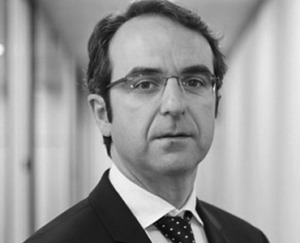
Collaborating Director
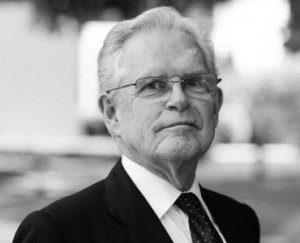
Speaker

Speaker

Speaker

Speaker

Speaker

Speaker

Speaker

Speaker

Speaker

Speaker

Speaker

Speaker
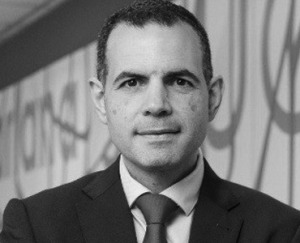
Speaker

Speaker
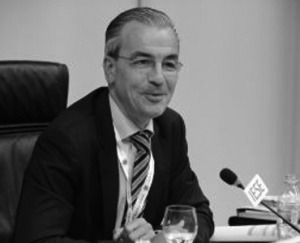
Speaker
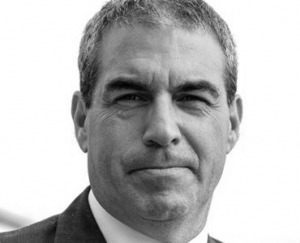
Speaker

Speaker
| 09:00–09:15 | WELCOME
• Prof. Adrián Caldart, Academic Director of the Meeting, IESE Business School |
| 09:15–10:30 | ECONOMICS AND GEOPOLITICS
World economic activity continues to firm up and recent IMF reports confirm that world economic recovery is a fact, as illustrated by its world economic outlook projections for 2018 and 2019 of estimated 3.9% growth. In the short term, these fine prospects appear to face balanced risks, but certain noneconomic factors should not be overlooked, such as isolationist policies and geopolitical tension. • Ira Kalish, Chief Global Economist, Deloitte Moderator-speaker: Prof. Antonio Argandoña, IESE Business School |
| 10:30–11:30 | INDUSTRY STATUS AND CHALLENGES
• José Mª Bonmatí, Managing Director, AECOC Moderator: Prof. Adrián Caldart, IESE Business School |
| 11:30–12:00 | Coffee-Break |
| 12:00–13:00 | GLOBAL FOOD SYSTEM SCENARIOS
Given today’s major challenges of demographic growth, technological innovation, urbanization, the energy transition as an unprecedented social change, it is essential for the food and beverage industry to carefully study the many different scenarios that could arise in the future. This session will provide a chance to reflect on potential scenarios in the medium and long term, based on the priority factors and decisions of the present. • Shay Eliaz, Principal, Monitor Deloitte Moderator: Prof. Mike Rosenberg, IESE Business School |
| 13:00–14:15 | INNOVATION ECOSYSTEMS: ENTREPRENEURS, STARTUPS AND COMPANIES
One strategic topic for companies in the food and beverage industry is innovation and the different management models designed to foster it. Besides making use of their own in-house talent, R&D management and intrapreneurship opportunities, companies are increasingly pursuing cooperation with a range of different ecosystem players, including startups, entrepreneurs and research centers. New collaboration configurations are emerging between spinoffs, established companies and startups. Companies are also creating their own specialized startup units through accelerators that fill knowledge gaps and provide access to innovations, new technologies and new ways of doing and seeing things. Networks and ecosystems for collaboration and innovation are expanding connections between investors, companies, entrepreneurs and startups. • Alberto Benbunan, Founder of Mobile Dreams Factory, DelSúper, Gelt and Super Robotics Moderator: Fernando Pasamón, Partner, Deloitte |
| 14:15–15:30 | Lunch |
| 15:30–16:30 | NUTRITION
Research and observational studies have shown that nutrition is a crucial factor in people’s well-being and health. Precision nutrition, personalized nutrition and preventive nutrition are some of the concepts that illustrate the importance of nutrition in the food and beverage industry and its close ties to the area of disease prevention, public health and social policy. • Prof. Miguel Ángel Martínez-González, University of Navarra Moderator: Raimon Ripoll, Partner, Deloitte |
| 16:30–17:45 | WHAT CONSUMERS WANT FROM RETAIL
Concepts such as convenience, sustainability and omnichannel availability will be key in the distribution industry’s attempts to understand and cater to its informed, hyperconnected consumers, who are increasingly more aware of what they are buying and consuming. This has led to a rise in neighborhood and convenience stores and city supermarkets featuring longer opening hours in keeping with city life and a wide selection of products with transparent information on their origin and nutritional value. Consumers want an experienced distributor and look for the signs to identify with it. • Ignacio Cobo, Director General Supermercados, Carrefour Moderator: Prof. Jaume Llopis, IESE Business School |
| 17:45–18:00 | Break |
| 18:00–19:00 | STRATEGY AND BUSINESS MODELS
International expansion based on setting up foreign subsidiaries has always been challenging in terms of management and leadership. Some basic requirements for success include choosing the right partners and target buyers, being able to adapt the value proposal to different domestic markets, choosing leaders for international operations and taking advantage of size-based synergies. Of particular interest in this situation are Spanish companies that have been successful outside the European Union in highly demanding markets such as North America, and in emerging regions such as the African continent. • Bernardo Coca, General Manager BU B2B & Russia/CIS (ex-Strategy Director), GB Foods Moderator: Prof. Adrián Caldart, IESE Business School |
| 19:00–19:15 | CLOSING SESSION
• Prof. Adrián Caldart, Academic Director of the Meeting, IESE Business School |
The fees for the 22 Food and Beverage Industry Meeting are:
General
IESE Alumni
IESE Members and Partners
Fee includes lunch.
Payment must be made prior to program attendance.
Places are limited and registrations are processed in strict order of receipt.
2017 · Sustainable Growth Strategies: Challenges and Opportunities
2016 · A Global, Creative Look at Growth, New Markets and Change
2015 · The Road to 2025 and Beyond
2014 · The Four I-Engines of the Industry
2013 · Selling Across Continents
2012 · Growth in the recession. Examples for industry and retail
2011 · In search of added value: how to get consumers, margins and competitiveness back
2010 · Food wars: counterattack brands. Rebuilding the industry’s future